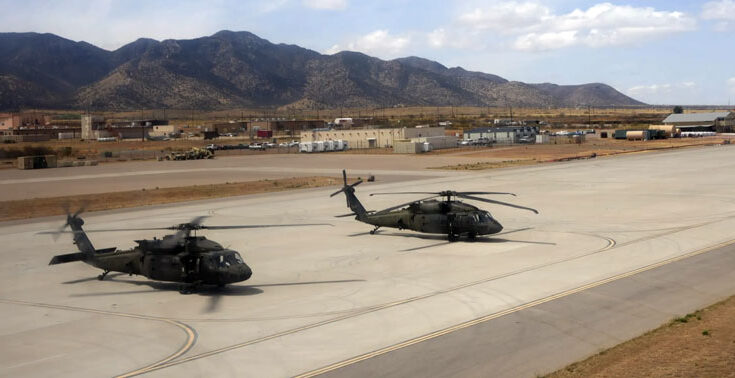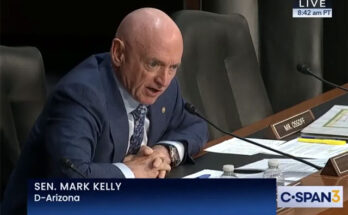By Grace Berry and Isabella Gomez/Cronkite News
WASHINGTON D.C. – Most of Marcelo Carrillo’s customers work at Fort Huachuca – the biggest military installation in Arizona and the biggest employer in the state’s southeast corner.
With the government shutdown in its fourth week and thousands of civilian federal workers furloughed, the lunch rush at 143 Street Tacos, less than a mile from the gate, has slowed to a trickle.
So Carrillo has turned the tip jar into a collection jar – for donors to buy their neighbors meals they can no longer afford.
“People come and they drop off money like, here’s $20, here’s $5,” he said. “This is a tight-knit community, and my friends are going through it every time they do this shutdown thing.”
Roughly one in five people in Sierra Vista, a city of 44,000, work at Fort Huachuca. So the impasse in Washington is hitting especially hard.
“We have people hurting,” Sierra Vista Mayor Clea McCaa said – a point he has made in calls with Sens. Mark Kelly and Ruben Gallego, both Democrats, and Rep. Juan Ciscomani, R-Tucson, whose district includes his city.
His plea to each of them was: “Talk to each other. Meet, and pass the budget.”
The Army uses the fort to train drone operators and military intelligence professionals, among other missions.
Statewide, roughly 34,500 federal workers have been furloughed since Oct. 1 or are working without pay, according to the Arizona AFL-CIO. The Congressional Budget Office puts the nationwide tally at 750,000.
One such worker is Neena Spina, 50.
She has lived in Sierra Vista for five years, the last two managing contracts for the Army. With no sign of a deal to reopen the government, or even serious talks between the parties, she has been cutting back.
“We’re not eating rice and beans, but at the same time, we’re not going to go on vacation for a week,” she said. “Things like running and getting a coffee, that’s a splurge.”
Spina has a side hustle that helps ease the pinch – life coaching. “My daughter takes dance classes, and we’ve still been able to do that, but that’s partially because I have a coaching business on the side,” she said.
And her husband, a minister, has a steady income. Many other families in town rely on two federal paychecks that have stopped coming.
“We are not double-furloughed. I know many people who are, and that’s especially hard,” Spina said.
Precise headcounts are hard to come by, in part because the fort’s public affairs office has been furloughed.
A 2023 report prepared for the state’s Military Affairs Commission put the Fort Huachuca employment at about 8,800, roughly half of them civilians. That doesn’t include contractors.
“The bills still come, whether or not the paycheck does,” said Melany Edwards-Barton, CEO of the Sierra Vista Area Chamber of Commerce. “The fort plays a substantial role in our economy. Sierra Vista wouldn’t be here if it wasn’t for Fort Huachuca.”
She emphasized that the pain affecting individual furloughed workers has spread widely.
“We’re not seeing the number of people out shopping and spending money in the community,” she said. “Our local businesses are suffering.”
Apart from the donation jar, 143 Street Tacos has been letting customers dine on credit: eat now, pay later.
Sulphur Springs Valley Electric Cooperative, which estimates that up to 30% of its residential customers work at Fort Huachuca, is offering payment extensions and other assistance.
“I don’t think any other utility has that concentration of government employees or even government contractors,” said CEO Jason Bowling. “That’s just one small burden that they don’t have to worry as much about when there’s so many other things on their minds.”
For Spina, the shutdown – and the willingness of leaders in Washington to allow it to persist – is a slap in the face to public servants.
Knowing the shutdown was about to hit, she worked frantically for over a week to ensure that contractors got paid before the fiscal year ended.
And then everything ground to a halt overnight.
Now, she said, it feels “questionable whether or not the politicians even know that we exist.”
For more stories from Cronkite News, visit cronkitenews.azpbs.org.










